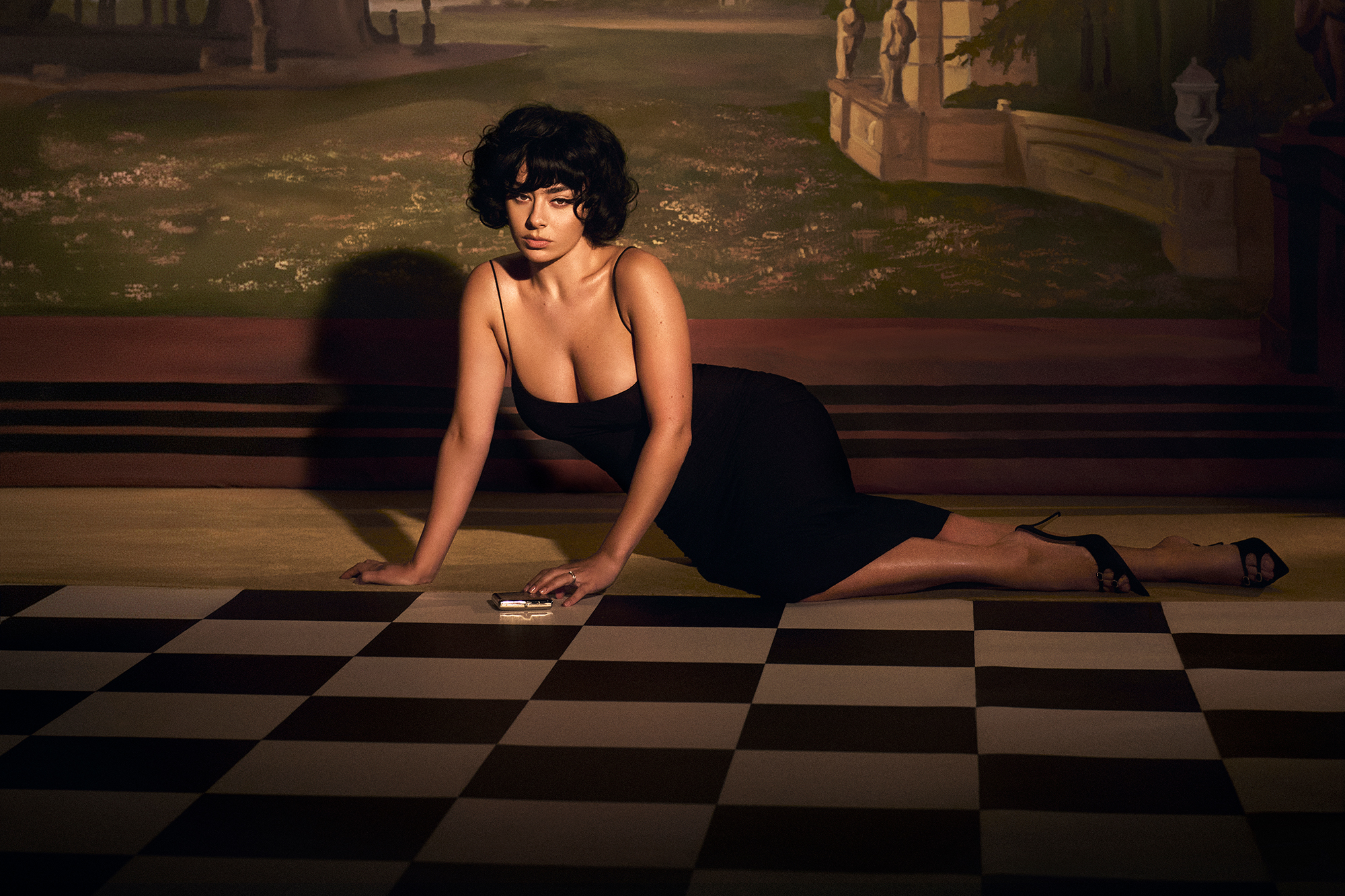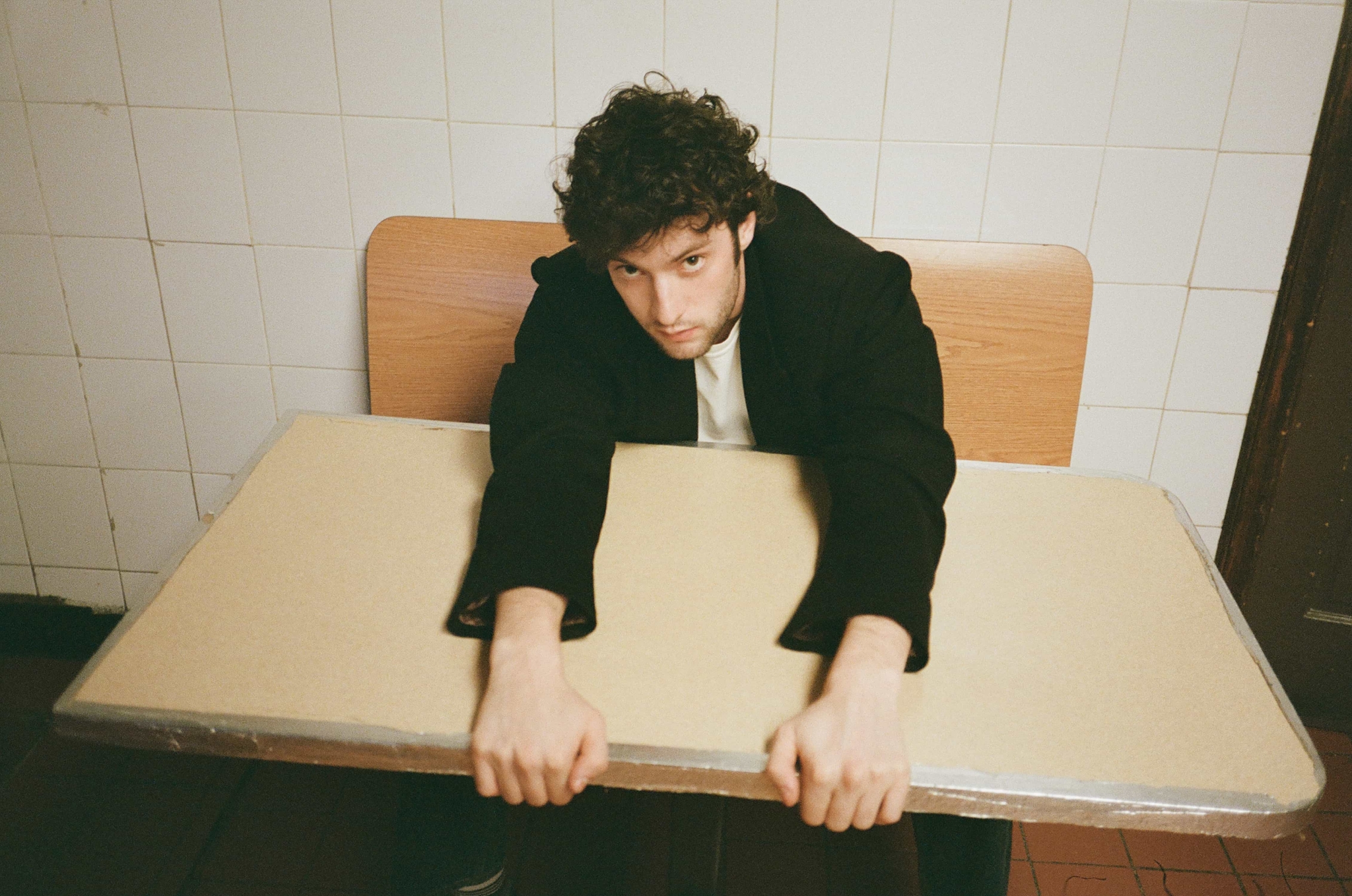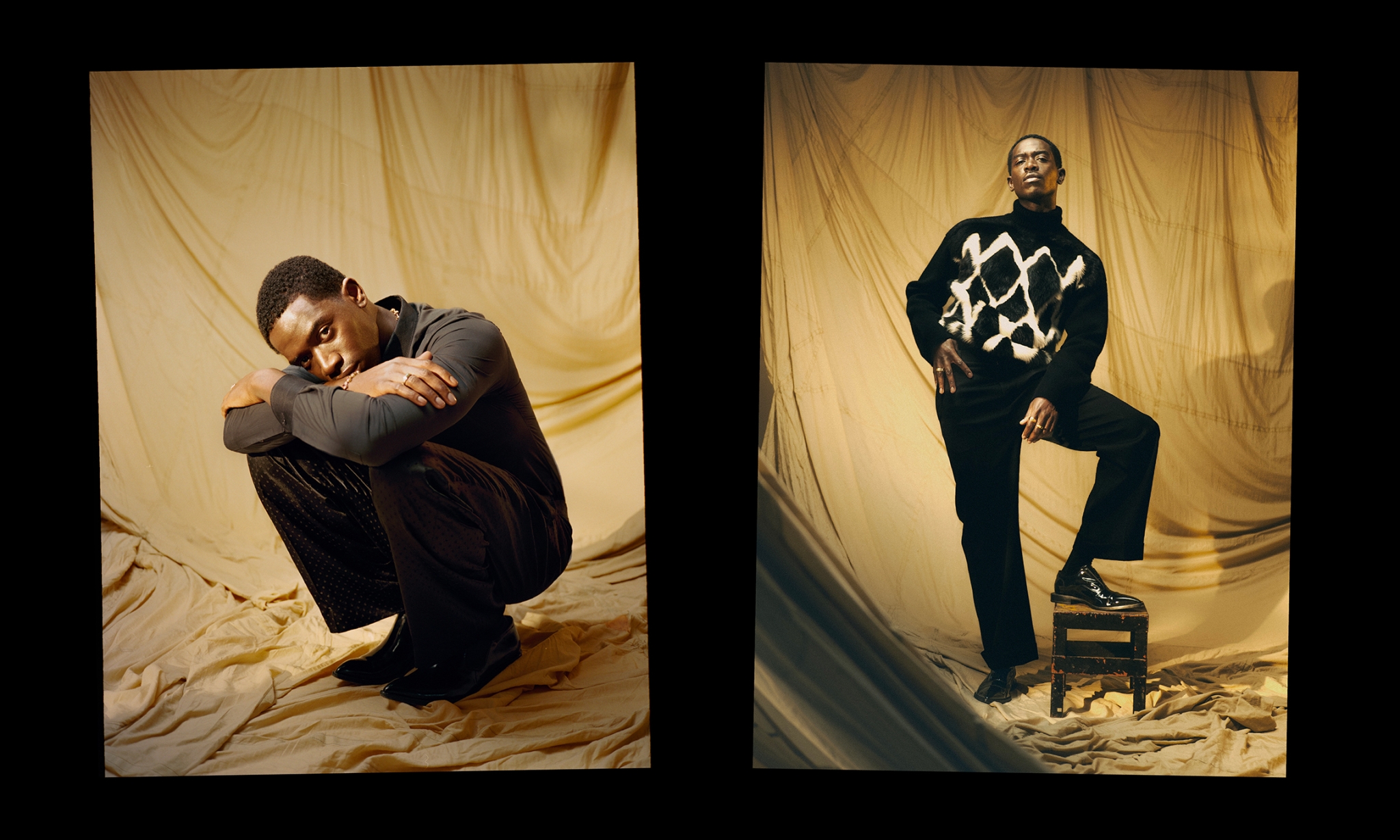

*Liquor Store Dreams is showing at this year’s London Film Festival! Buy tickets here*
Hanging high inside the newly-named Skid Row’s People Market in South Central LA is a plaque that reads “Joy Is An Act Of Resistance”. It was likely put there by Danny Park, the current proprietor of the liquor store alongside his mother. Inheriting the store after the death of his father, Danny made the decision to leave his dream job at Nike, preferring to return home and do his best to turn a dusty but homely convenience store into a warm meeting place for different walks of life – a place of solidarity.
“Joy is an act of resistance” is a sentiment that rings through the core of Liquor Store Dreams, a documentary about a lot of things: the immigrant’s journey, generational trauma/conflict, tensions between minorities, uprising, identity, sacrifice, dreams. But also about one thing: community.
The director is So Yun Um, and, along with Danny, she’s the subject of the movie. Her parents also own a liquor store, which is how they became friends. As a result of their unique upbringing, she refers to herself and Danny as “Liquor Store Babies” (children of 1st gen Korean-American immigrant liquor store owners). At first, the documentary plays as a window into the lives of So and Danny, and their respective relationships to the legacy their parents are leaving them. Soon, though, the camera pans out to reveal a scope larger than just the two of them.
Talking to So, you immediately get the sense that she thinks deeply about her place and the people around her, and considers the making of Liquor Store Dreams as much an act of responsibility to her community as it was an outlet of personal exploration of her identity. If there’s one thing to take away from the film (there’s many), it’s that one is intrinsically tied to the other, and vice-versa.
Though So has undoubtedly found her wings as a filmmaker, she’s a cinephile first and foremost. During our conversation I jokingly reference a tweet she once made calling for a remake of Fight Club starring Robert Pattinson and Andrew Garfield, to which she takes a half-second of confused contemplation before it comes back to her. “OH!” she laughs sheepishly, “I have bro-ey taste. I hate that it’s evolved into such a “film-bro” movie because in college I pretty much religiously watched Fight Club over and over”. She’s being modest; other favourites range from The Matrix and Akira to 81/2 and The Red Shoes to Millennium Mambo and Possession to Batman Returns and Better Luck Tomorrow – a true student of the game if I’ve ever seen one.
As accustomed to living and breathing the internet as any child born in the 90s, it’s no surprise that So has embraced the digital sphere as a conduit of self-expression and creative growth. For a handful of years she ran So’s Reel Thoughts, a youtube channel where she’d review and react to cinema’s latest, that has now found new life on her extremely active instagram. She’s also BTS Army and a Letterbox’d patron (a humble brag we share – although So’s was gifted directly by the platform after appearing on their pod a few months back while mine cost me a cool £49.50 that I miss dearly). And still, the brief conversation I have with her projects a young filmmaker who takes her craft incredibly seriously, and is ready to use it to change the world in her own way.

Luke: I want to congratulate you on the film, it’s so beautiful. You also announced a few days ago that you’ve been invited to screen at Busan International Film Festival. Can you tell me a little bit of what it means to you to take your film there?
So: I was so surprised when we got into Busan because I always felt, and this is just my shallow thinking, that Korean people in Korea don’t care about Korean-American issues, or anti-blackness [in Korean-American culture]; the things that we as Americans are experiencing. I think for them to actually accept our film was really that acknowledgement and validation that I feel like I needed as a Korean who is living in LA. We always feel that we’re living in both worlds – and for my parents I think this was one of the first times they’ll go back and feel like this is a full-circle moment. They immigrated to America so they can make a better life for themselves, and to have your daughter capture that on film and be able to go back to your home-country and show it…I think that whole experience is very meaningful. To be able to share the whole diaspora of what it means to be Korean in all aspects is going to be a very special moment.
Luke: It’s interesting because internationally I think a lot of people have begun to appreciate and take massive notice of Korean culture and entertainment. Cinephiles will know that they’ve been making some of the best movies for decades now, but K-dramas and K-Pop are also incredibly popular now.
As someone who’s grown up close to that culture, why do you think there’s been such an international boom of popularity over the last half a decade or so?
So: I feel like because I’ve been in it for so long and I’ve been seeing it since I was a child, the boom has been going on but it only feels recent because of the rise of BTS and Parasite and Squid Game etc. The first wave was when Park Chan-wook came out with Oldboy and Lee Chang-dong came out with a lot of his films, so I had already seen that wave come through to America, and so to see this new wave and re-emergence is really fascinating. I always say that Netflix is single-handedly changing the landscape of Korean Cinema and culture, which is amazing and wild to see in real time. The K-Drama format used to be 20-24 episodes and they would drag on, and now Netflix is like: 8 episodes. And they’re airtight and engaging and to the point.
I like the shift, but I hope there are companies beyond Netflix that will invest in Korean cinema and culture. Because I’m aware of the culture, I always want people to come with the awareness that this is also a fantasy – this is not how Korea is in real life. People are struggling there, and the ideal romantic partners for men and women are not what you see in Korean dramas. There was a recent article that said that there’s been this boom of women going to Korea to seek men and that boom also happened in the early 2000s as well and I feel like a lot of people were met with a lot of disappointment. Everything’s idealized in the media and then you go in real life and “hey! Sexism is still a real thing and actually normalized in Korea” which is unfortunate. And so, I think hopefully things will change – with so many more eyes on Korea internationally now I think they’ll also have to take that into account. With the boom of Korean culture also comes the influx of foreigners and people’s eyes on you and that they do have to be more mindful and respectful.
Luke: More than anything else, this feels like a journey you’ve taken with your father in a lot of ways. How do you think your relationship has changed from the inception and filming of the movie to coming out of it?
So: I think a lot of growth has happened since the film came out and him being able to see people’s reactions and how they’re receiving it, how they approach him and tell him how much they relate to the story. For him it’s so new. Even during a Q&A he was saying the whole time he was like “don’t do it!” and now I see you actually do it and I’m so glad that you weren’t swayed by my words. And now he’s like “oh my god you’re going to go all the way, you’re going to do amazing things! You should make another documentary!” That’s a lot, but I’m glad that as a filmmaker he has a little bit more trust in me. I think I have to give it a little more time to see his own growth – I’d like to hear from him after Busan and London…how he feels about it all when it’s international, when he sees the film premiere in his homeland and he can see the significance.
In terms of our relationship, we’ve always been pretty open. Now we just get to enjoy the good parts and experience things together that we wouldn’t have gotten the chance to before.
Luke: I love that he went from “why are you making movies??” to “you’re going to be the next James Cameron!”
So: *laughs* I know!
Luke: Even though you don’t always see eye-to-eye in the movie it’s clear you have a warm relationship. That being said, one of my favourite moments is when you’re both watching the George Floyd protests at home and you end up having this heated debate regarding the ethics of rioting and looting during that time. Why was it important for you in that moment to reach for the camera and record a conversation that you had probably had before and knew was going to be a frustrating exchange?
So: It actually wasn’t a conversation we had had before, so it was really scary for me. I had an inkling of how he might respond, but I didn’t fully grasp where it would go. Usually before I film I have a list of questions that I want to hit, but also you just have to navigate because you don’t know where these conversations will take you. The film evolved so much. In the first two years it was a very straightforward story and I think after 2020 and Covid and George Floyd passing and the police brutality and all these issues that we were dealing with as a community, like the anti-blackness, were coming to the forefront. These were issues and themes that I was really scared to tackle, but this felt like a moment in time that I felt like I had to capture just because I was filming the protests at the same time. It was very heated. We had the conversation, it went there. There’s that Maggie Kuhn quote “stand before the people you fear and speak your mind – even if your voice shakes”. I had to get it out and ask him those hard questions and hear what he had to say. It was so heated – my mom was in the kitchen yelling “STOP FILMING!” It was chaotic, but I’m glad we had the camera as our mediator to have that tough conversation.
Luke: I’m glad you did – for a lot of us in our generation we’ve had to have similar conversations as the one you had with your dad in the film, where we’ve had to confront long held cultural traditions that might be racist or misogynistic etc. They’re the hardest conversations to have, and so it felt good to see that on screen.
So: Yeah it’s scary, I don’t know how other people do it.
Luke: I know! But it often leads to growth, as it does in the movie.

Luke: You’re right in what you said before that it takes a lot of nuance to deftly execute themes and conversations that are so hotly debated online and so deep-rooted and political. Did you ever feel any trepidation about tackling those sensitive topics in the movie?
So: Ultimately, it took a lot of nuance and finessing by me and my editor Christina Sun Kim and there were so many back and forth conversations that we had to have: If it’s problematic we gotta take it out. If we’re not saying it in the right way we gotta take it out. If both Korean people as well as everybody else can’t understand exactly what we’re trying to say, then we gotta take it out. We really had to fine tune and find a balance where everyone knew exactly what we were saying within the context of the story but also there’s so many moving parts. How do we add in everything and create the nuance that we want? There was a domino effect where if we didn’t mention one thing it would affect the next and vice versa. Even when I showed my dad the film I told him not to say anything until the film ends, because if you stop it in the middle you won’t understand the film. You have to watch the entire thing to fully understand every little point we’re trying to make because they all tie in together and one does not work without the other. Danny’s story does not work without my story and vice versa. It took a lot to figure out how to create a perfect union of all these themes and make it work, make it honest, and make it true to reality.
Luke: You’re a frequent user of letterbox’d. What’s your favourite movie you’ve logged this year?
So: Wow there’s so many! Honestly, I think the number one movie this year is Everything Everywhere All At Once, and I’m really excited to see it with my parents. I’m waiting for the Korean subtitles to come to America. Luckily I think the movie’s showing in Busan so if I can get a ticket and show it to my parents that would be amazing.
Luke: That’s a great pick! That and After Yang, maybe, are the two best this year.
So: Oh my god, yes! Those are the two top films (including my film of course), where I was really just stunned. Also Nope. Jordan Peele is incredible. I don’t know how his mind works or how he thinks of these things but I feel like we really need to uplift original ideas because Hollywood and streaming sites in general aren’t prioritizing those films as much.
Luke: You mention at the beginning of the film that Justin Lin’s Better Luck Tomorrow and Spike Lee’s films as being the trigger for your love for cinema in a lot of ways. What films were you rewatching during the making of this film and what lessons did you take away from them that impacted how you went about making the movie.
So: For sure watching every film that related to the LA uprising in ‘92. I didn’t want to make something that was already created, in Korean-American cinema as well as the uprising, so I watched every single one of those and figured out how to make mine different and unique to me. In the very beginning I was very much inspired by Agnes Varda’s Beaches of Agnes. She made this documentary that was a very different format than what a straightforward documentary would be like, and for Liquor Store Dreams I wanted to add elements of levity and fun and quirkiness, especially because the themes of the film were so heavy. I always think “how do I make a documentary like a narrative and a narrative like a doc?”. I really took that to heart
Luke: Speaking of narrative, I want to ask about your originally-planned feature film. You had an idea in your head of what that feature might one day look like…
So: [Before Liquor Store Dreams] I initially thought I would do a narrative – a coming of age movie about a girl in KoreaTown in LA, where I grew up. But I learned so much during Liquor Store Dreams that I’m going back to the drawing board. I’m slowly trying to finesse it..storytelling is really hard and I want to figure it out. With narrative you have to make everything up. It can be based in reality, but you have to think about how people will talk and what they’ll say. That’s why I love documentaries so much, people’s raw reactions are so much funnier, unreal and so true to life.
Luke: Do you see yourself starring in the movie?
So: No! I’ll need to search. I want to prioritize teens looking like teens. Not in a Euphoria way where they’re all hip. Teens are not amazingly-dressed or good looking and they’re messy and I want the casting to embody that. It’s something that somebody else should be carrying.
Luke: What’s the most important thing you want audiences to take away from the film?
So: Talk to your parents. As we get older we don’t realize that they are also getting older, and that our time together is finite. Create the memories that you want and don’t regret them. I don’t want to live a life of regret. That’s my mantra to everything. I always feel like change starts at home first. We all want to change the world but that’s such a big concept, how do we do it from literally ground zero? Ground zero is our parents.






